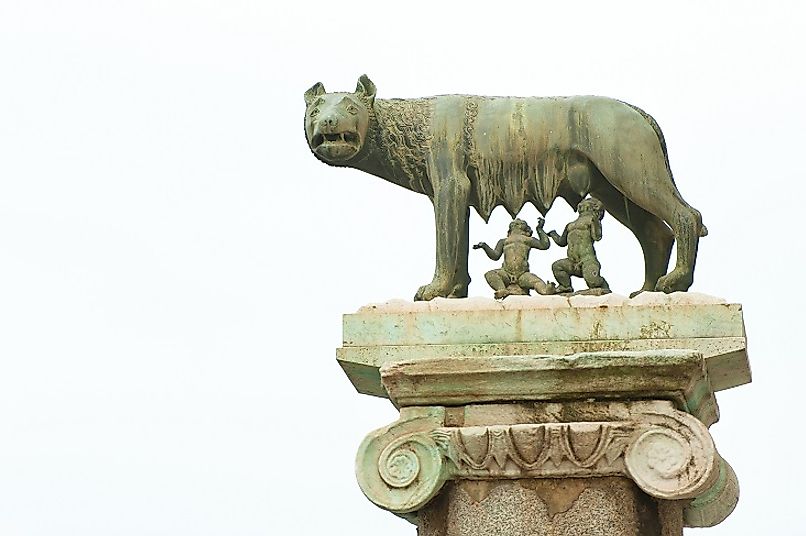The Roman Kingdom: 753 BCE to 509 BCE

5. Formation
The founder of Rome was the legendary Romulus who, according to legend, alongside his twin brother Remus was as an orphan baby suckled by a wolf. The two boys grew up as shepherds raising sheep in the hills near the Tiber River. In 753 BC, after defeating his brother and others in the area for power therein, Romulus founded Rome in the Palatine Hill above the Tiber River. The men who helped build the city included both freemen and slaves. Romulus was determined to unite all of these men under his rule by creating new laws to better their lives. He gave the men wives by abducting the Sabine women, an act that resulted in a war with the Sabine tribe. Romulus for a time shared power with the Sabine King Titus Tatius. He then formed the Senate and formalized the state of Rome. He ruled for 36 years.
4. Rise To Prominence
The early Roman Kings had almost absolute power, and controlled the weak Senate whose only purpose was to do their bidding. The only power that the Senate had over the King was the final decision in declaring war. The Roman Kings' rules alternated between peace, religious reforms, war, territory expansions, and diplomacy. The Kings' rises to power were also noted for being either related by family relations, tribe, adoption, slave stock, luck, or as a favorite of one to come before. But the last king was a tyrant and especially disrespectful of the Roman Senate, and as a consequence was deposed and driven out of Rome. The events that followed led to the birth of the Roman Republic that would replace the Kingdom of Rome.
3. Challenges
Numa Pompilius was the second king after Romulus. Numa was concerned with religious affairs and peace. Tullus Hostilius, the third king, waged war with three states and annexed them into Roman territory. Ancus Marcius, the fourth king and grandson of Numa, united the lesser states by diplomacy and expanded Rome further, and built the first salt mine, which was of great economic importance to the kingdom. Lucius Priscus, the fifth king, sacked the Sabines and Etruscans, gaining territory and treasures along the way. Servius Tulius, initially of slave stock, was the sixth king. The son-in-law of Priscus, Servius Tulius was war-like, and reorganized the army and built the first wall around Rome. Lucius Tarquinius Superbus (Tarquin the Proud), the seventh king and son of Pricus, was also a war-monger, and one who managed to finish the public works started by previous kings, though he generally disrespected the Senate and payed the consequences for doing so.
2. Demise
The reign of Tarquin the Proud (Lucius Tarquinius Superbus), the last king of the Roman Kingdom, ushered in the beginning of the end of the Kingdom founded by Romulus, and ushered in the era of the Roman Republic. Tarquin the Proud, whose disrespect for the Roman Senate was well-known, was also a tyrant to his people. His son helped bring his reign to an end by a scandal that involved the wife of a powerful Senate member. The suicide of the woman led four Roman nobles to act against the king and his family, which ultimately ended the king's reign in 509 BC. The scandal and events that followed left the Roman Kingdom open to a new beginning as a Republic.
1. Legacy In History
Rome became a republic after the fall of its last king. As a legacy of the failed reign of the seventh and last king of the previous kingdom, the Consul was created, and had power over the king, whose position now was more titular than anything, and soon gone altogether. Lucius Junius Brutus and Collatinus had the honor of being appointed by the Senate to first hold the offices of the Consuls of the new Roman Republic. To ensure against tyranny, a magistrate also shared some responsibility in that power, and was known as the Praetor. The Praetor could remove the Consuls' judicial authority and the censor who could stop the Consuls' power to a census. The new republic lasted for around 500 years.











